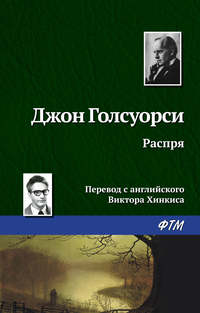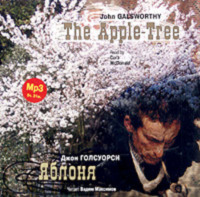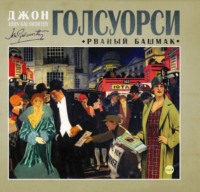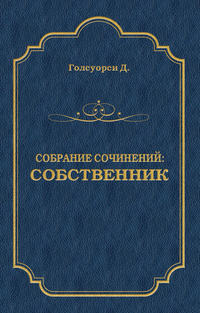 полная версия
полная версияAnother Sheaf
Ever since the substantial introduction of democracy nearly a century and a half ago with the American War of Independence, Western civilisation has been living on two planes or levels – the autocratic plane, with which is bound up the idea of nationalism, and the democratic, to which has become conjoined the idea of internationalism. Not only little wars, but great wars such as this, come because of inequality in growth, dissimilarity of political institutions between States; because this State or that is basing its life on different principles from its neighbours. The decentralisation, delays, critical temper, and importance of home affairs prevalent in democratic countries make them at once slower, weaker, less apt to strike, and less prepared to strike than countries where bureaucratic brains subject to no real popular check devise world policies which can be thrust, prepared to the last button, on the world at a moment's notice. The free and critical spirit in America, France, and Britain has kept our democracies comparatively unprepared for anything save their own affairs.
We fall into glib usage of words like democracy and make fetiches of them without due understanding. Democracy is inferior to autocracy from the aggressively national point of view; it is not necessarily superior to autocracy as a guarantee of general well-being; it may even turn out to be inferior unless we can improve it. But democracy is the rising tide; it may be dammed or delayed, but cannot be stopped. It seems to be a law in human nature that where, in any corporate society, the idea of self-government sets foot it refuses to take that foot up again. State after State, copying the American example, has adopted the democratic principle; the world's face is that way set. And civilisation is now so of a pattern that the Western world may be looked on as one State and the process of change therein from autocracy to democracy regarded as though it were taking place in a single old-time country such as Greece or Rome. If throughout Western civilisation we can secure the single democratic principle of government, its single level of State morality in thought and action, we shall be well on our way to unanimity throughout the world; for even in China and Japan the democratic virus is at work. It is my belief that only in a world thus uniform, and freed from the danger of pounce by autocracies, have States any chance to develop the individual conscience to a point which shall make democracy proof against anarchy and themselves proof against dissolution; and only in such a world can a League of Nations to enforce peace succeed.
But even if we do secure a single plane for Western civilisation and ultimately for the world, there will be but slow and difficult progress in the lot of mankind. And unless we secure it, there will be only a march backwards.
For this advance to a uniform civilisation the solidarity of the English-speaking races is vital. Without that there will be no bottom on which to build.
The ancestors of the American people sought a new country because they had in them a reverence for the individual conscience; they came from Britain, the first large State in the Christian era to build up the idea of political freedom. The instincts and ideals of our two races have ever been the same. That great and lovable people, the French, with their clear thought and expression, and their quick blood, have expressed those ideals more vividly than either of us. But the phlegmatic and the dry tenacity of our English and American temperaments has ever made our countries the most settled and safe homes of the individual conscience, and of its children – Democracy, Freedom and Internationalism. Whatever their faults – and their offences cry aloud to such poor heaven as remains of chivalry and mercy – the Germans are in many ways a great race, but they possess two qualities dangerous to the individual conscience – unquestioning obedience and exaltation. When they embrace the democratic idea they may surpass us all in its logical development, but the individual conscience will still not be at ease with them. We must look to our two countries to guarantee its strength and activity, and if we English-speaking races quarrel and become disunited, civilisation will split up again and go its way to ruin. We are the ballast of the new order.
I do not believe in formal alliances or in grouping nations to exclude and keep down other nations. Friendships between countries should have the only true reality of common sentiment, and be animated by desire for the general welfare of mankind. We need no formal bonds, but we have a sacred charge in common, to let no petty matters, differences of manner, or divergencies of material interest, destroy our spiritual agreement. Our pasts, our geographical positions, our temperaments make us, beyond all other races, the hope and trustees of mankind's advance along the only line now open – democratic internationalism. It is childish to claim for Americans or Britons virtues beyond those of other nations, or to believe in the superiority of one national culture to another; they are different, that is all. It is by accident that we find ourselves in this position of guardianship to the main line of human development; no need to pat ourselves on the back about it. But we are at a great and critical moment in the world's history – how critical none of us alive will ever realise. The civilisation slowly built since the fall of Rome has either to break up and dissolve into jagged and isolated fragments through a century of wars; or, unified and reanimated by a single idea, to move forward on one plane and attain greater height and breadth.
Under the pressure of this war there is, beneath the lip-service we pay to democracy, a disposition to lose faith in it because of its undoubted weakness and inconvenience in a struggle with States autocratically governed; there is even a sort of secret reaction to autocracy. On those lines there is no way out of a future of bitter rivalries, chicanery and wars, and the probable total failure of our civilisation. The only cure which I can see lies in democratising the whole world and removing the present weaknesses and shams of democracy by education of the individual conscience in every country. Good-bye to that chance if Americans and Britons fall foul of each other, refuse to pool their thoughts and hopes, and to keep the general welfare of mankind in view. They have got to stand together, not in aggressive and jealous policies, but in defence and championship of the self-helpful, self-governing, "live and let live" philosophy of life.
The house of the future is always dark. There are few corner-stones to be discerned in the temple of our fate. But of these few one is the brotherhood and bond of the English-speaking races, not for narrow purposes, but that mankind may yet see faith and good-will enshrined, yet breathe a sweeter air, and know a life where Beauty passes, with the sun on her wings.
We want in the lives of men a "Song of Honour," as in Ralph Hodgson's poem:
"The song of men all sorts and kinds,As many tempers, moods and mindsAs leaves are on a tree,As many faiths and castes and creeds,As many human bloods and breeds,As in the world may be."In the making of that song the English-speaking races will assuredly unite. What made this world we know not; the principle of life is inscrutable and will for ever be; but we know that Earth is yet on the up-grade of existence, the mountain-top of man's life not reached, that many centuries of growth are yet in front of us before Nature begins to chill this planet till it swims, at last, another moon, in space. In the climb to that mountain-top of a happy life for mankind our two great nations are as guides who go before, roped together in perilous ascent. On their nerve, loyalty, and wisdom the adventure now hangs. What American or British knife will sever the rope?
He who ever gives a thought to the life of man at large, to his miseries and disappointments, to the waste and cruelty of existence, will remember that if American or Briton fail himself, or fail the other, there can but be for us both, and for all other peoples, a hideous slip, a swift and fearful fall into an abyss, whence all shall be to begin over again.
We shall not fail – neither ourselves, nor each other. Our comradeship will endure.
1917.ANGLO-AMERICAN DRAMA AND ITS
FUTURE3
There is a maxim particularly suitable to those who follow any art: "Don't talk about what you do!" And yet, once in a way, one must clear the mind and put into words what lies at the back of endeavour.
What, then, is lying at the back of any growth or development there may have been of late in drama?
In my belief, simply an outcrop of sincerity – of fidelity to mood, to impression, to self. A man here and there has turned up who has imagined something true to what he has really seen and felt, and has projected it across the foot-lights in such a way as to make other people feel it. This is all that has happened lately on our stage. And if it be growth, it will not be growth in quantity, since there is nothing like sincerity for closing the doors of theatres. For, just consider what sincerity excludes: All care for balance at the author's bank – even when there is no balance; all habit of consulting the expression on the public's face; all confectioning of French plays; all the convenient practice of adding up your plots on the principle that two and two make five. These it excludes. It includes: Nothing because it pays; nothing because it will make a sensation; no situations faked; no characters falsified; no fireworks; only something imagined and put down in a passion of sincerity. What plays, you may say, are left? Well, that was the development in our drama before this war began. The war arrested it, as it arrested every movement of the day in civil life. But whether in war or peace, the principles which underlie art remain the same and are always worth consideration.
Sincerity in the theatre and commercial success are not necessarily, but they are generally, opposed. It is more or less a happy accident when, they coincide. This grim truth cannot be blinked. Not till the heavens fall will the majority of the public demand sincerity. And all that they who care for sincerity can hope for is that the supply of sincere drama will gradually increase the demand for it – gradually lessen the majority which has no use for that disturbing quality. The burden of this struggle is on the shoulders of the dramatists. It is useless and unworthy for them to complain that the public will not stand sincerity, that they cannot get sincere plays acted, and so forth. If they have not the backbone to produce what they feel they ought to produce, without regard to what the public wants, then good-bye to progress of any kind. If they are of the crew who cannot see any good in a fight unless they know it is going to end in victory; if they expect the millennium with every spring – they will advance nothing. Their job is to set their teeth, do their work in their own way, without thinking much about result, and not at all about reward, except from their own consciences. Those who want sincerity will always be the few, but they may well be more numerous than now; and to increase their number is worth a struggle. That struggle was the much-sneered-at, much-talked-of so-called "new" movement in our British drama.
Now it was the fashion to dub this new drama the "serious" drama; the label was unfortunate, and not particularly true. If Rabelais or Robert Burns appeared again in mortal form and took to writing plays, they would be "new" dramatists with a vengeance – as new as ever Ibsen was, and assuredly they would be sincere. But could they well be called "serious"? Can we call Synge, or St. John Hankin, or Shaw, or Barrie serious? Hardly! Yet they are all of this new movement in their very different ways, because they are sincere. The word "serious," in fact, has too narrow a significance and admits a deal of pompous stuff which is not sincere. While the word "sincere" certainly does not characterise all that is popularly included under the term "new drama," it as certainly does characterise (if taken in its true sense of fidelity to self) all that is really new in it, and excludes no mood, no temperament, no form of expression which can pass the test of ringing true. Look, for example, at the work of those two whom we could so ill spare – Synge and St. John Hankin. They were as far apart as dramatists well could be, except that each had found a special medium – the one a kind of lyric satire, the other a neat, individual sort of comedy – which seemed exactly to express his spirit. Both forms were in a sense artificial, but both were quite sincere; for through them each of these two dramatists, so utterly dissimilar, shaped forth the essence of his broodings and visions of life, with all their flavour and individual limitations. And that is all one means by – all one asks of – sincerity.
Then why make such a fuss about it?
Because it is rare, and an implicit quality of any true work of art, realistic or romantic.
Art is not art unless it is made out of an artist's genuine feeling and vision, not out of what he has been told he ought to feel and see. For art exists not to confirm people in their tastes and prejudices, not to show them what they have seen before, but to present them with a new vision of life. And if drama be an art (which the great public denies daily, but a few of us still believe), it must reasonably be expected to present life as each dramatist sees it, and not to express things because they pander to popular prejudice, or are sensational, or because they pay.
If you want further evidence that the new dramatic movement is marked out by its struggle for sincerity, and by that alone, examine a little the various half-overt oppositions with which it meets.
Why is the commercial manager against it?
Because it is quite naturally his business to cater for the great public; and, as before said, the majority of the public does not, never will, want sincerity; it is too disturbing. The commercial manager will answer: "The great public does not dislike sincerity, it only dislikes dullness." Well! Dullness is not an absolute, but a very relative term – a term likely to have a different meaning for a man who knows something about life and art from that which it has for a man who knows less. And one may remark that if the great public's standard of what is really "amusing" is the true one, it is queer that the plays which tickle the great public hardly ever last a decade, while the plays which do not tickle them occasionally last for centuries. The "dullest" plays, one might say roughly, are those which last the longest. Witness Euripides!
Why are so many actor-managers against the new drama?
Because their hearts are quite naturally set on such insincere distortions of values as are necessary to a constant succession of "big parts" for themselves. Sincerity does not necessarily exclude heroic characters, but it does exclude those mock heroics which actor-managers have been known to prefer – not to real heroics, perhaps, but to simple and sound studies of character.
Why is the Censorship against it?
Because censorship is quite naturally the guardian of the ordinary prejudices of sentiment and taste, and quaintly innocent of knowledge that in any art fidelity of treatment is essential to a theme. Indeed, I am sure that this peculiar office would regard it as fantastic for a poor devil of an artist to want to be faithful or sincere. The demand would appear pedantic and extravagant.
Some say that the critics are against the new drama. That is not in the main true. The inclination of most critics is to welcome anything with a flavour of its own; it would be odd indeed if it were not so – they get so much of the other food! They are, in general, friends to sincerity. But the trouble with the critic is rather the fixed idea. He has to print his opinion of an author's work, while other men have only to think it; and when it comes to receiving a fresh impression of the same author, his already recorded words are liable to act on him rather as the eyes of a snake act on a rabbit. Indeed, it must be very awkward, when you have definitely labelled an author this, or that, to find from his next piece of work that he is the other as well! The critic who can make blank his soul of all that he has said before may indeed exist – in Paradise!
Why is the greater public against the new drama?
By the greater public I in no sense mean the public who don't keep motor cars – the greater public comes from the West-end as much as ever it comes from the East-end. Its opposition to the "new drama" is neither covert, doubtful, nor conscious of itself. The greater public is like an aged friend of mine, who, if you put into his hands anything but Sherlock Holmes, or The Waverley Novels, says: "Oh! that dreadful book!" His taste is excellent, only he does feel that an operation should be performed on all dramatists and novelists by which they should be rendered incapable of producing anything but what my aged friend is used to. The greater public, in fact, is either a too well-dined organism which wishes to digest its dinner, or a too hard-worked organism longing for a pleasant dream. I sympathise with the greater public!..
A friend once said to me: "Champagne has killed the drama." It was half a truth. Champagne is an excellent thing, and must not be disturbed. Plays should not have anything in them which can excite the mind. They should be of a quality to just remove the fumes by eleven o'clock and make ready the organism for those suppers which were eaten before the war. Another friend once said to me: "It is the rush and hurry and strenuousness of modern life which is scotching the drama." Again, it was half a truth. Why should not the hard-worked man have his pleasant dream, his detective story, his good laugh? The pity is that sincere drama would often provide as agreeable dreams for the hard-worked man as some of those reveries in which he now indulges, if only he would try it once or twice. That is the trouble – to get him to give it a chance.
The greater public will by preference take the lowest article in art offered to it. An awkward remark, and unfortunately true. But if a better article be substituted, the greater public very soon enjoys it every bit as much as the article replaced, and so on – up to a point which we need not fear we shall ever reach. Not that sincere dramatists are consciously trying to supply the public with a better article. A man could not write anything sincere with the elevation of the public as incentive. If he tried, he would be as lost as ever were the Pharisees making broad their phylacteries. He can only express himself sincerely by not considering the public at all. People often say that this is "cant," but it really isn't. There does exist a type of mind which cannot express itself in accordance with what it imagines is required; can only express itself for itself, and take the usually unpleasant consequences. This is, indeed, but an elementary truth, which since the beginning of the world has lain at the bottom of all real artistic achievement. It is not cant to say that the only things vital in drama, as in every art, are achieved when the maker has fixed his soul on the making of a thing which shall seem fine to himself. It is the only standard; all the others – success, money, even the pleasure and benefit of other people – lead to confusion in the artist's spirit, and to the making of dust castles. To please your best self is the only way of being sincere. Most weavers of drama, of course, are perfectly sincere when they start out to ply their shuttles; but how many persevere in that mood to the end of their plays, in defiance of outside consideration? Here – says one to himself – it will be too strong meat; there it will not be sufficiently convincing; this natural length will be too short, that end too appalling; in such and such a shape I shall never get my play taken; I must write that part up and tone this character down. And when it is all done, effectively, falsely – what is there? A prodigious run, perhaps. But – the grave of all which makes the life of an artist worth the living. Well! well! We who believe this will never get too many others to believe it! Those heavens will not fall; theatre doors will remain open; the heavy diners will digest, and the over-driven man will dream. And yet, with each sincere thing made – even if only fit for reposing within a drawer – its maker is stronger, and will some day, perhaps, make that which need not lie covered away, but reach out from him to other men.
It is a wide word – sincerity. "A Midsummer Night's Dream" is no less sincere than "Hamlet," "The Mikado" as faithful to its mood of satiric frolicking as Ibsen's "Ghosts" to its mood of moral horror. Sincerity bars out no themes; it only demands that the dramatist's moods and visions should be intense enough to keep him absorbed; that he should have something to say so engrossing to himself that he has no need to stray here and there and gather purple plums to eke out what was intended to be an apple tart. Here is the heart of the matter: You cannot get sincere drama out of those who do not see and feel with sufficient fervour; and you cannot get good sincere drama out of those who will not hoe their rows to the very end. There is no faking and no scamping to the good in art. You may turn out the machine-made article very natty, but for the real hand-made thing you must have toiled in the sweat of your brow. In Britain it is a little difficult to persuade people that the writing of plays and novels is work. To many it remains one of those inventions of a certain potentate for idle hands to do. To some persons in high life, and addicted to field sports, it is still a species of licensed buffoonery, to be regulated by a sort of circus-master with a whip in one hand and a gingerbread nut in the other. By the truly simple soul it is thus summed up: "Work! Why, 'e sits writin' all day." To some, both green and young, it shines as a vocation entirely glorious and exhilarating. If one may humbly believe the evidence of his own senses, it is not any of these, but a patient calling, glamorous now and then, but with fifty minutes of hard labour and yearning to every ten of satisfaction. Not a pursuit, maybe, which one would change, but then, what man with a profession flies to others that he knows not of?
Novelists, it is true, even if they have not been taken too seriously by the people of these islands, have for a long time past respected themselves, but the calling of a dramatist till quite of late has been but an invertebrate and spiritless concern. Pruned and prismed by the censor, exploited by the actor, dragooned and slashed by the manager, ignored by the public, who never even bothered to inquire the names of those who supplied it with digestives – it was a slave's job. Thanks to a little sincerity it is not now a slave's job, and will not again, I think, become one.
From time to time in that vehicle of improvisation, that modern fairy tale – our daily paper – we read words such as these: "What has become of the boasted renascence of our stage?" or: "So much for all the trumpeting about the new drama!" When we come across such words, we remember that it is only natural for journals to say to-day the opposite of what they said yesterday. For they have to suit all tastes and preserve a decent equilibrium!
There is a new safeguard of the self-respecting dramatist which no amount of improvising for or against will explain away. Plays are now not merely acted, they are published and read, and will be read more and more. This does not mean, as some say, that they are being written for the study – they were never being written more deliberately, more carefully, for the stage. It does mean that they are tending more and more to comply with fidelity to theme, fidelity to self; and therefore are more and more able to bear the scrutiny of cold daylight. And for the first time, perhaps, since the days of Shakespeare there are dramatists in this country, not a few, faithful to themselves.
Now, all this is not merely fortuitous. For, however abhorrent such a notion may be to those yet wedded to Victorian ideals, we were, even before the war, undoubtedly passing through great changes in our philosophy of life. Just as a plant keeps on conforming to its environment, so our beliefs and ideals are conforming to our new social conditions and discoveries. There is in the air a revolt against prejudice, and a feeling that things must be re-tested. The spirit which, dwelling in pleasant places, would never re-test anything is now looked on askance. Even on our stage we are not enamoured of it. It is not the artist's business (be he dramatist or other) to preach. Admitted! His business is to portray; but portray truly he cannot if he has any of that glib doctrinaire spirit, devoid of the insight which comes from instinctive sympathy. He must look at life, not at a mirage of life compounded of authority, tradition, comfort, habit. The sincere artist, by the very nature of him, is bound to be curious and perceptive, with an instinctive craving to identify himself with the experience of others. This is his value, whether he express it in comedy, epic, satire, or tragedy. Sincerity distrusts tradition, authority, comfort, habit; cannot breathe the air of prejudice, and cannot stand the cruelties which arise from it. So it comes about that the new drama's spirit is essentially, inevitably human and – humane, essentially distasteful to many professing followers of the Great Humanitarian, who, if they were but sincere, would see that they secretly abhor His teachings and in practice continually invert them.









